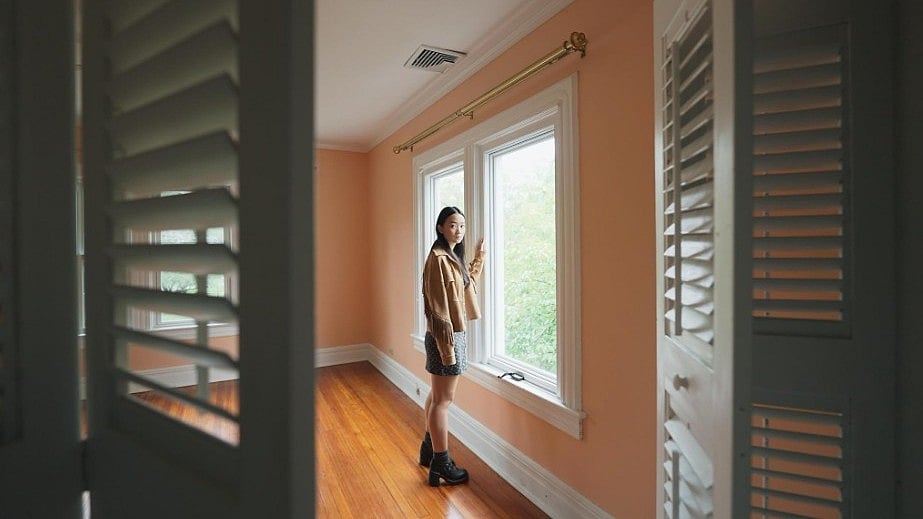Title: Presence
Director: Steven Soderbergh
Cast: Lucy Liu, Julia Fox, Chris Sullivan, Callina Liang, West Mulholland
Where: In theatres near you
Rating: 3.5 Stars
There are haunted houses, and then there is Presence, where the ghost holds the camera, haunts the mise-en-scène, and might even steal your empathy before the first jump scare. Steven Soderbergh- ever the cinematic shapeshifter, returns with a supernatural chamber piece that’s more Dante’s The Divine Comedy than The Conjuring and invites you—quite literally—into the mind of the dearly departed.
Told entirely from a ghost’s perspective (yes, the camera is the ghost), the film unfolds in a deceptively perfect suburban home—an ideal backdrop for quiet chaos. But this is not just POV gimmickry. The spirit feels sentient, searching, and lonely, like a house cat trapped in an aspirational good-life catalogue. It drifts through kitchens and bedrooms, observing, eavesdropping, and sometimes even tidying up. Whether it mourns, judges, or yearns, it never reveals. But it feels—and, surprisingly, so do we.
David Koepp’s screenplay weaves in just enough mystery to keep you squinting for clues but never enough to reduce the film to a puzzle box. It’s less about what the ghost wants and more about who it once was and how that knowledge changes the living. In lesser hands, this could’ve been spectral schmaltz. In Soderbergh’s, it becomes a slow-burn moral reckoning dressed in a horror film’s skin.
The Payne family—yes, that’s their actual name, and yes, the symbolism is about as subtle as a poltergeist throwing crockery—moves into the house carrying luggage, both literal and emotional. Lucy Liu plays Rebekah, the type-A matriarch with a motivational poster’s empathy. Chris Sullivan’s dad is softer around the edges but just as frayed at the seams. Their son Tyler (Eddy Maday) is an insufferable alpha-in-training, while daughter Chloe (Callina Liang), still grieving the death of a friend, becomes the ghost’s favorite and ours too. Liang is quietly arresting, grounding the film in a lived-in – melancholy that counterbalances the technical dazzle.
And what dazzle it is. Soderbergh, who serves as his own DP and editor under family-name pseudonyms, performs the role of ghost with the discipline of a method actor. The camerawork—restless, curious, sometimes tender—is a masterclass in perspective-as-character. Each frame- is loaded with intention; the edits are abrupt- as if dictated by the ghost’s own fractured attention span. At times, it feels- like the house itself is thinking.
But while the form is consistently gripping, the content stumbles here and there. The subplot around Rebecca’s ethically murky career choices fizzles like a séance interrupted by bad Wi-Fi. Similarly, the unravelling marriage is treated more like ambient noise than thematic meat. Perhaps these threads were trimmed- for pace, but their absence slightly weakens what is otherwise a remarkably cohesive film.
Ultimately, Presence isn’t a horror film so much as a philosophical haunting—a story about memory, moral weight, and the quiet ache of unfinished business. It doesn’t scare so much as it lingers. And by the end, when the ghost’s identity is finally revealed, the film’s real trick emerges: it makes you feel for the most invisible person in the room.
It turns out that the scariest thing about death might not be the end—it’s the watching.
